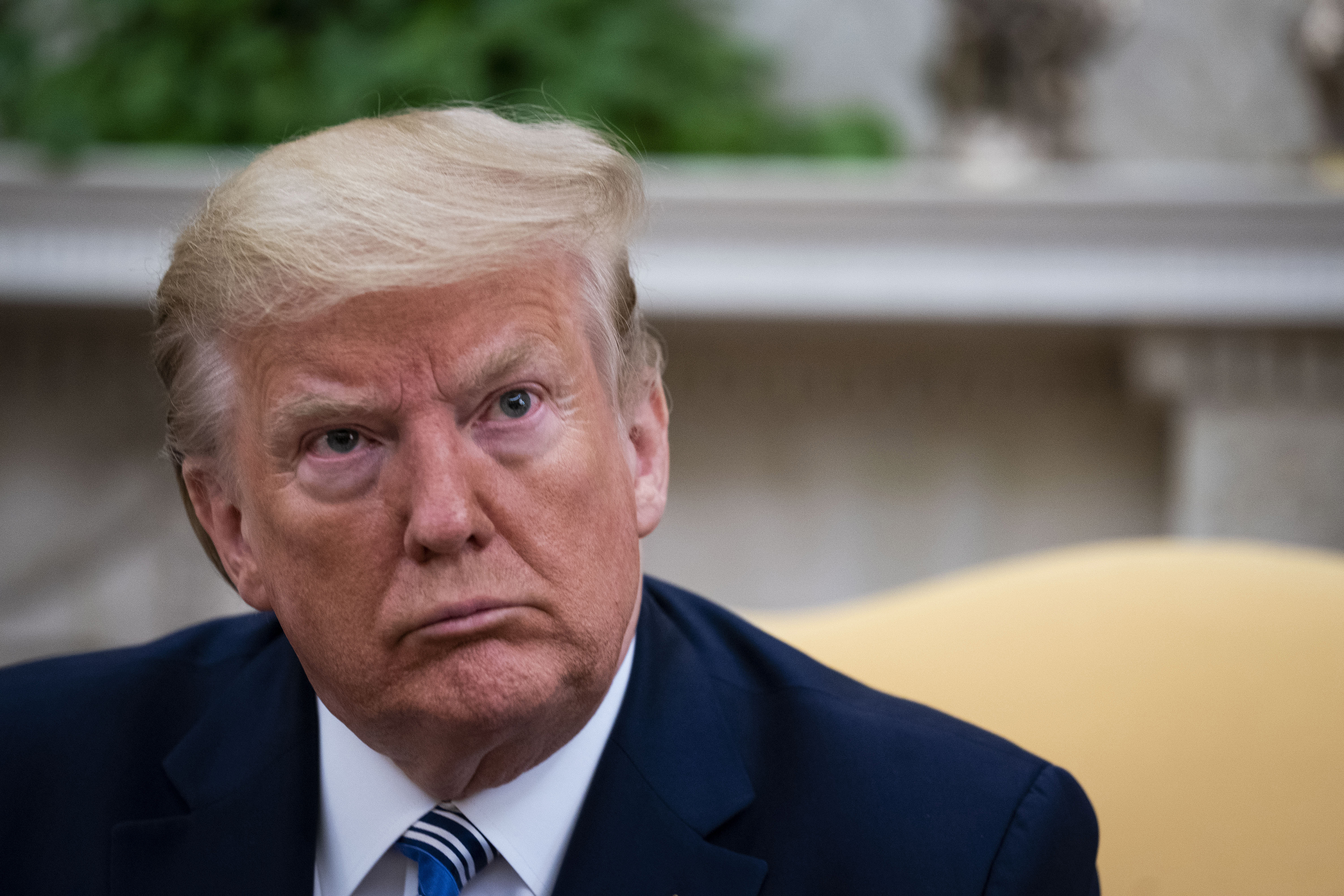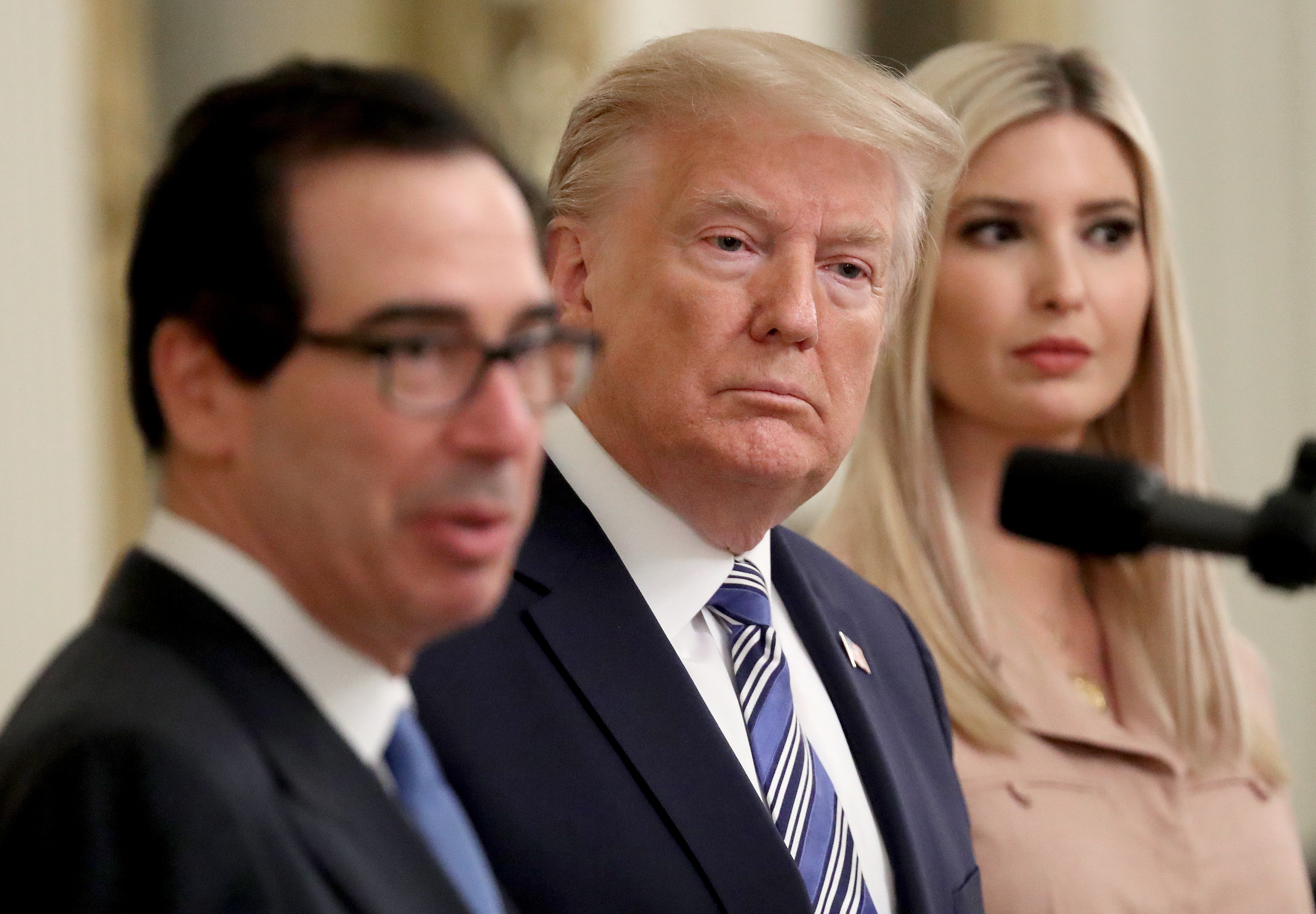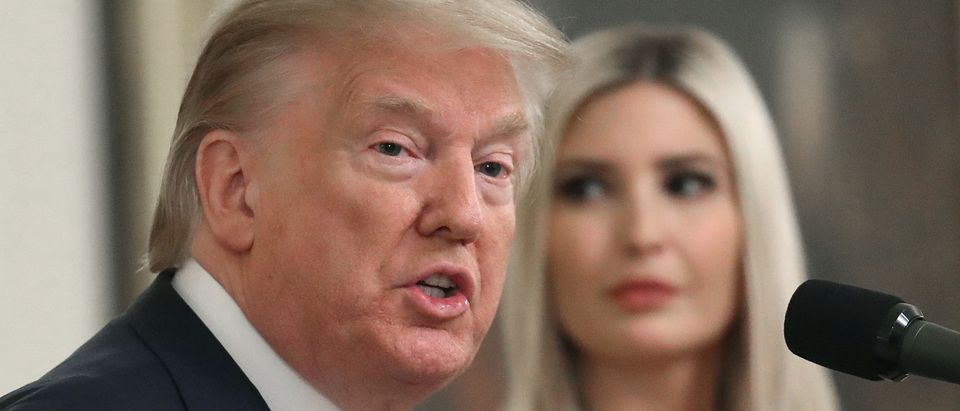President Donald Trump announced Tuesday he will sign a new executive order to address questions in the food supply chain that have arisen during the coronavirus pandemic.
The order leverages the Defense Production Act to compel meat processing plants to remain open despite discussions within the industry to close roughly 80 percent of all facilities. The action comes just days after Tyson Foods chairman John Tyson issued a full-page ad in the New York Times warning that the food supply chain is “breaking.”

WASHINGTON, DC – APRIL 28: U.S. President Donald Trump answers questions while meeting with Florida Gov. Ron DeSantis in the Oval Office of the White House on April 28, 2020 in Washington, DC. (Photo by Doug Mills/The New York Times/Pool/Getty Images)
“There will be limited supply of our products available in grocery stores until we are able to reopen our facilities that are currently closed,” he wrote in the ad. “Meat will disappear.”
Tyson’s warning echoed those made by Smithfield Foods CEO Ken Sullivan after hundreds of employees at a meat processing plant in South Dakota tested positive for coronavirus. Still, according to the order, meat packing plants will now be deemed a part of the country’s critical infrastructure, meaning employers — assuming they are following the White House’s safety guidelines — will not be subject to liability lawsuits if employees contract coronavirus on the job.
“We have had some difficulty where they are having a liability that is really unfair to them,” the president told reporters in the White House’s East Room ahead of signing the order Tuesday. “I fully understand it is not their fault.” (RELATED: Trump Administration Doesn’t Want Businesses To Be On The Hook In Coronavirus Liability Suits — But How Will They Actually Be Protected?)
WATCH:
White House officials familiar with the text of the order told the Daily Caller that the Department of Labor will also be releasing new guidelines in the near future. The Daily Caller was informed those guidelines will include special provisions for at-risk populations, including factory workers over the age of 65.
“The White House believes there’s an ample supply of workers fitting a profile that is younger and healthier to adequately keep working at a low risk,” one official stated. “This assessment is based on consultation with experts in the field as well as medical guidance.”
“Just like our healthcare workers, first responders, law enforcement, and janitors go in each and every day as a part of America’s critical infrastructure, our food supply too is also a part of our critical infrastructure,” the official continued. “The unsung heroes out there each and every day are stocking shelves, preparing food, and making sure Americans have enough to eat. This is certainly a service we can all applaud.”

WASHINGTON, DC – APRIL 28: U.S. President Donald Trump and his daughter Ivanka listen as U.S .Treasury Secretary Steven Mnuchin speaks during an event on supporting small businesses through the Paycheck Protection Program in the East Room of the White House April 28, 2020 in Washington, DC. (Photo by Win McNamee/Getty Images)
Trump’s plan to reopen state economies ignited concern that employers could be help liable if employees or customers contract coronavirus on company premises. National Economic Council Director Larry Kudlow has stated multiple times that businesses should not face lawsuits in these cases.
“If a restaurant is found guilty of gross negligence that’s different,” he told reporters gathered at the White House on Friday. “If they’re practicing the rules and regs and guides, as they should be, and, regrettably, someone, a customer or employee gets the infection or is infected by the virus, I don’t think there should be a lawsuit.”
Kudlow added that employer protections could be addressed in three different ways. The first two, executive order and regulatory changes, are being leveraged in the case of the meat processing plants. The third, legislative action, will likely be included in Congress’ Phase 4 coronavirus stimulus, though the House’s Tuesday decision not to return to from recess on May 4 throws the timeline for the new piece of legislation into doubt.


